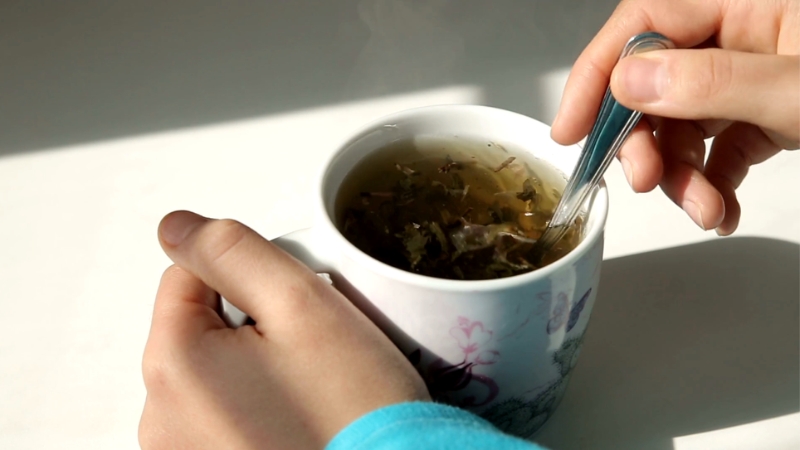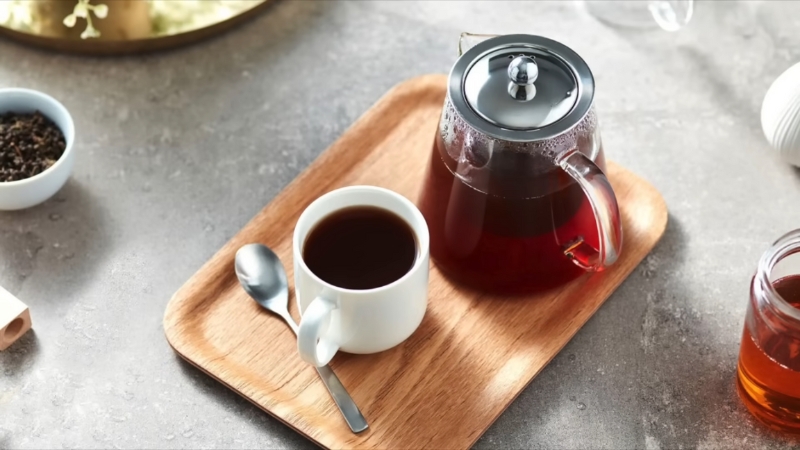Let me be straight with you right from the start: drinking tea on an empty stomach isn’t always the best idea.
While there are some upsides, especially if you’re sipping the right type of tea in moderation, downsides can sneak up on you—and I’ve learned that the hard way.
Like many of you, I started my day with a cup of tea for years—sometimes green tea, other times black, occasionally something herbal.
It always felt comforting, like a warm hug before facing the chaos of the day. But after a while, I noticed certain things happening—nausea, stomach discomfort, and an odd jitteriness that didn’t feel quite like caffeine energy.
The Pros of Drinking Tea on an Empty Stomach

Let’s give tea its due credit—depending on the type, time, and how your body reacts, there are some real benefits to drinking tea first thing in the morning.
1. Gentle but Noticeable Energy Boost
Tea contains caffeine, but unlike coffee, it doesn’t come with a full-on jolt. Instead, tea gives you a smoother, more stable lift thanks to L-theanine, an amino acid that promotes calm alertness.
When I used to drink green tea before early morning yoga or a run, I felt more awake but not jittery. The boost kicked in about 20–30 minutes after drinking and helped me power through my routine without feeling over-stimulated.
Compared to coffee, tea’s lower caffeine content (around 30–50 mg per cup vs. 95 mg in coffee) can be a gentler way to shake off sleep without overwhelming your system, especially if you’re sensitive to caffeine.
2. Mild Metabolism Kick-Start
Does green tea enhance weight loss? 🍵
Green tea extract is a popular weight loss supplement, in part due to its content of catechin which can enhance fat metabolism🔥
But does it actually improve weight loss outcomes? 🧐
This new meta-analysis compiled data from 10 studies… pic.twitter.com/TAXbDtdgBF
— Tom Coughlin (@tecoughlin) October 7, 2024
Green tea and oolong tea are known for their metabolism-boosting properties. Research has shown that green tea can increase fat oxidation and slightly raise metabolic rate, though the effect is modest.
A study published in the American Journal of Clinical Nutrition found that green tea extract increased energy expenditure by about 4% over 24 hours. That’s not huge, but on an empty stomach, when your body isn’t busy digesting food, it might help enhance this process.
I noticed that drinking green tea first thing helped curb my appetite slightly, making it easier to hold off on heavy breakfasts or mindless snacking.
3. Mental Clarity & Focus
Starting your day with tea can help you feel mentally sharper without the crash. Thanks again to L-theanine, which boosts alpha brain waves (those associated with relaxed focus), you can experience better concentration, without the edge coffee sometimes gives.
When I had a big writing day ahead, I’d often turn to matcha on an empty stomach. The calm, focused energy helped me zone in on work for hours. Compared to coffee, there was no jittery energy spike or mid-morning crash.
The Cons of Drinking Tea on an Empty Stomach
View this post on Instagram
Now here’s where things get real—because as much as I love tea, I’ve also suffered the consequences of sipping it without food. Let’s unpack the downsides with some solid details.
1. Stomach Irritation, Acid Reflux, and Nausea
Tea—especially black, green, or matcha contains tannins and acids that can irritate your stomach lining when there’s no food to buffer it. This can lead to nausea, bloating, or even acid reflux.
There was a period when I started my mornings with strong black tea. Within 15–20 minutes, I’d feel a dull ache in my stomach or mild nausea. Sometimes, I’d even burp up a sour taste—classic reflux symptoms. Once I started eating a small snack first, those symptoms disappeared almost instantly.
2. Increased Anxiety or Shaky Feeling
Drinking caffeinated tea without food can spike your cortisol levels (your stress hormone), especially if your body is already in a fasting state. The result? Jitters, anxiety, and an overall sense of unease.
I used to think tea was “gentler,” but one morning, after two cups of green tea on an empty stomach, my heart was racing, my hands were trembling, and I couldn’t focus. It felt like a caffeine overload—but I hadn’t even had coffee!
If you’re prone to anxiety, this can seriously disrupt your morning and set the tone for the rest of your day.
3. Interferes With Iron Absorption
Tea is high in tannins, which can bind to iron (especially non-heme iron from plant sources) and reduce your body’s ability to absorb it. Over time, this could lead to lower iron levels—especially if you’re vegan, vegetarian, or menstruating.
Drinking tea with meals can reduce iron absorption by up to 60%, and on an empty stomach, when iron levels are already low from overnight fasting, it can be worse, according to Verywellhealth.
As someone who struggled with borderline iron deficiency, I made it a rule to never drink strong tea without eating first, or at least wait until after breakfast to sip it.
4. Can Cause Digestive Disruption
Some teas, particularly bitter or heavily brewed ones, can suppress digestive enzyme secretion or reduce saliva flow. This means your stomach is less prepared to digest food when you finally eat.
In the mornings I had strong black tea but delayed breakfast, I often felt heavier and slower after finally eating, like my digestion just wasn’t working right. Once I started drinking herbal teas or eating a small bite first, digestion improved noticeably.
The Type of Tea Matters

Through trial and error, I’ve discovered that not all teas are created equal when it comes to morning consumption.
So, What’s the Verdict?
After years of experimenting and reading up on the science, my answer is this:
Drinking tea on an empty stomach can be beneficial in some cases, but it’s generally not ideal—especially for people with sensitive stomachs, anxiety issues, or nutrient concerns.
I’ve learned to either:
Final Thoughts

Your morning tea ritual doesn’t have to disappear—it just might need a little tweaking. Pay attention to how your body reacts. If you feel fine sipping tea before breakfast, great! But if you’re feeling off—tired, nauseated, jittery—it might be time to change things up.
I’ve found that starting my day with water, followed by a light bite, and then tea works best. It keeps me energized, focused, and free of any tummy troubles.




